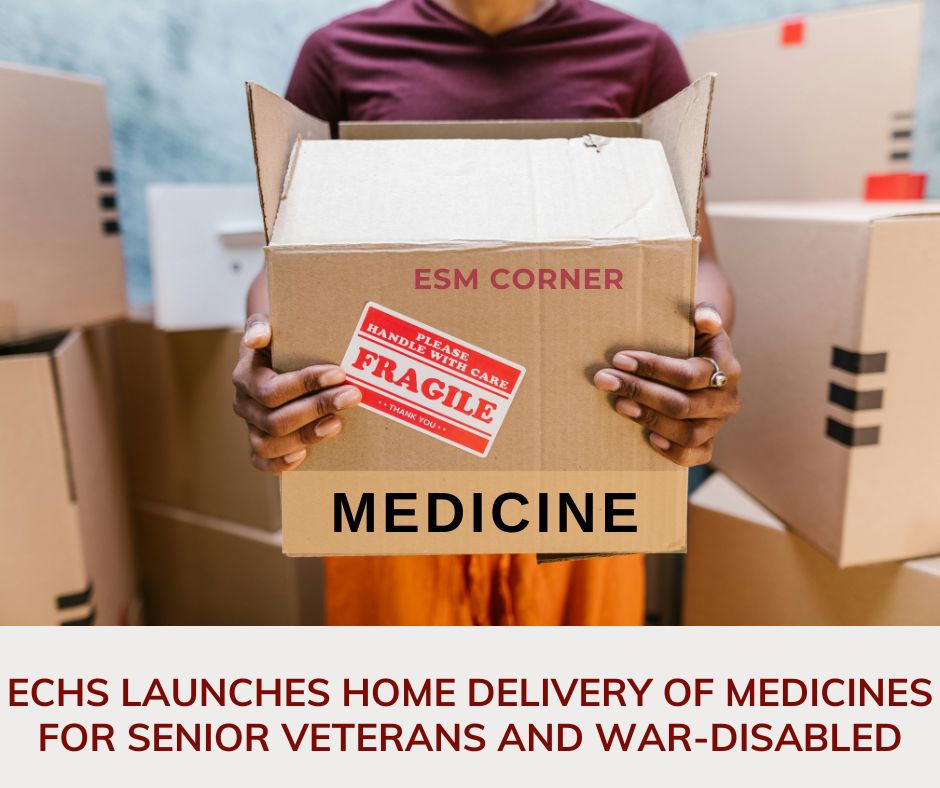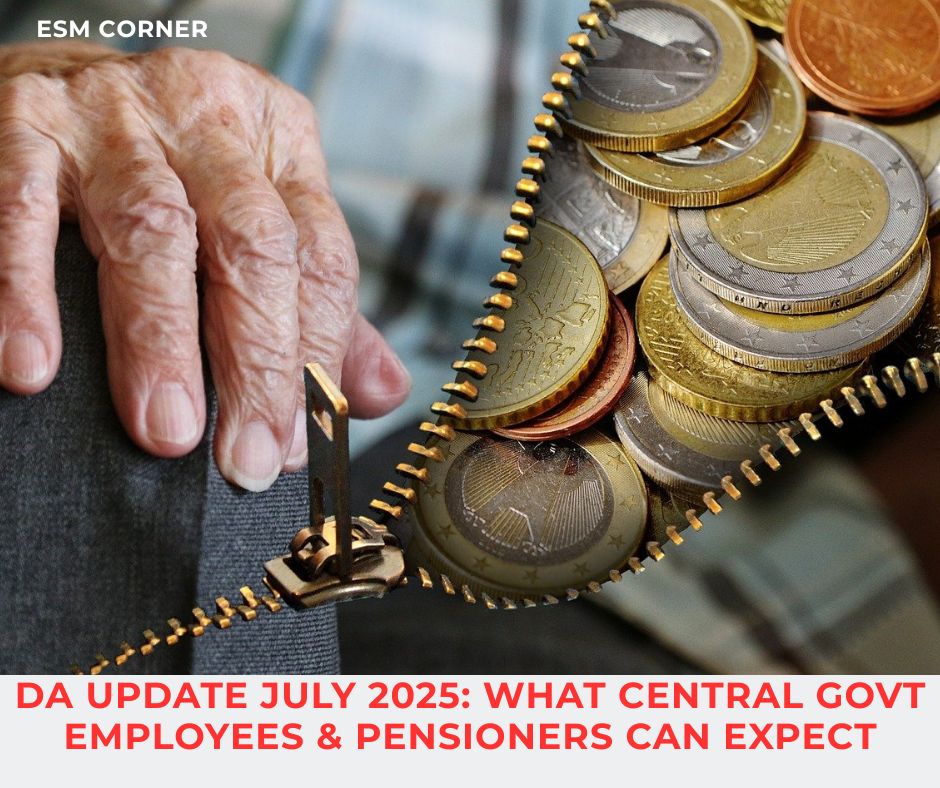
In a welcome move aimed at making healthcare more accessible and convenient for its senior members, the Ex-Servicemen Contributory Health Scheme (ECHS) has launched a nationwide Home Delivery of Medicines project. This initiative will benefit select categories of ECHS beneficiaries, ensuring they receive their essential medications at their doorstep without the need to physically visit a polyclinic.
This development, backed by the Ministry of Defence (Department of Ex-Servicemen Welfare – DESW), marks a significant shift towards more veteran-friendly healthcare practices, especially for those who may find it difficult to visit medical centres regularly due to age, health, or physical disabilities.
Who Will Benefit?
The home delivery service has been specifically approved for the following groups:
- ECHS beneficiaries above 70 years of age
- White Card holders
- War-disabled veterans
These individuals often face mobility issues or live in remote areas, making it difficult to access ECHS polyclinics regularly. By delivering medicines to their homes, this initiative aims to ease their burden and improve their overall healthcare experience.
What will be Delivered Under ECHS Medicine Home Delivery?
It’s important to note that only Non-Availability (NA) Medicines — medicines that are not available at the local polyclinic stock — will be delivered through this system. However, certain types of medicines will not be eligible for home delivery. These include:
- Cold chain medicines (those requiring refrigeration)
- Schedule H1 and Schedule X drugs (restricted drugs under the Drugs & Cosmetics Act)
- Injectables
- High-value medicines
These exclusions are based on safety, regulatory, and logistical reasons, ensuring that only appropriate and safely transportable medicines are sent via courier.
How Will It Work?
The project will be implemented with the help of three main partners:
- Department of Post (DoP) – India Post will handle the logistics and delivery process.
- SDCPL – The agency responsible for software support and IT integration.
- Common Services Centres (CSC) – Through their Village Level Entrepreneurs (VLEs), CSC will manage the last-mile delivery in various districts.
A network of local VLEs will be deployed in every district to support the functioning of this system. These individuals will ensure that medicines are packaged correctly and delivered timely to the correct recipients. A list of nominated state and district heads for the VLE deployment has been prepared, and further details on individual VLE assignments will be shared soon.
Parent Polyclinic System
A key rule in this project is that the medicines will be delivered only through the parent polyclinic of the beneficiary. This means that the polyclinic where the ESM is registered will be responsible for arranging and processing the medicine delivery. There is no provision for delivery from other, non-parent clinics. This ensures that records, prescriptions, and medicine tracking remain consistent and streamlined.
Payment and Monitoring
All payments for medicine deliveries will be handled centrally by CO ECHS (Central Organisation ECHS) through the Controller of Defence Accounts (CDA), DelhiNo direct payment is to be made by ECHS beneficiaries to either delivery staff or external service providers.
To manage finances responsibly, a yearly delivery ceiling (limit) has been fixed for each polyclinic depending on its category. For the financial year 2025-26, the delivery cap starts from 15 August 2025 and continues until the end of the financial year. This cap ensures proper control, budgeting, and reporting.
Each Station Headquarters (Stn HQ) will play a crucial role in managing and monitoring these transactions. They will:
- Track how many deliveries have taken place at each polyclinic.
- Make sure the assigned limits are not exceeded.
- Verify the monthly delivery records and forward the reports to the respective Command Headquarters
- Ensure timely data entry, delivery tracking, and grievance redressal using the software provided.

Polyclinic Responsibilities
Each Officer-in-Charge (OIC) of a polyclinic will be accountable for
- Ensuring the service is used only by eligible categories (above 70 years, White card holders, war-disabled).
- Making sure medicines are delivered only to registered beneficiaries at their parent polyclinic.
- Using the official software platform provided by SDCPL to maintain accurate records and to send feedback to their Stn HQ.
Benefits of the Project
This initiative offers several advantages:
- Greater convenience for elderly and disabled veterans who face difficulty in travelling.
- Faster access to essential medications for those living in far-flung areas.
- Streamlined administration with automated tracking and monitoring tools.
- Increased satisfaction among ECHS beneficiaries due to personalized healthcare delivery.
It also brings in accountability, as the entire chain — from the polyclinic to VLE to postal delivery — will be monitored and evaluated periodically.
Making It Work: The Role of ESM Community
The success of this initiative depends not only on the administrative and logistical support but also on spreading awareness among ESMs and their families. Station HQs have been advised to give wide publicity to the scheme and make sure all eligible veterans know how to avail of this benefit.
Conclusion
The Home Delivery of Medicines project under ECHS is a thoughtful and much-needed reform that aligns healthcare services with the needs of senior and specially-abled ex-servicemen. By leveraging technology, postal services, and local outreach through CSCs, the government has taken a major step towards inclusive and respectful veteran care.
As the project rolls out from August 2025, it is expected to bring relief and dignity to thousands of retired soldiers across the country who served the nation with pride. This initiative is not just about delivering medicines — it’s about delivering care, compassion, and commitment to those who once stood for our nation’s safety.
ALSO READ I 10 MUST-KNOW BENEFITS AND UPDATES FROM THE DIRECTORATE OF CANTEEN SERVICES IN 2025






Delivery of medicines should be better
Large number of med are marked NA
CLAIMS OF NA MEDICINES ARE DRASTICALLY WITHOUT ANY REASON